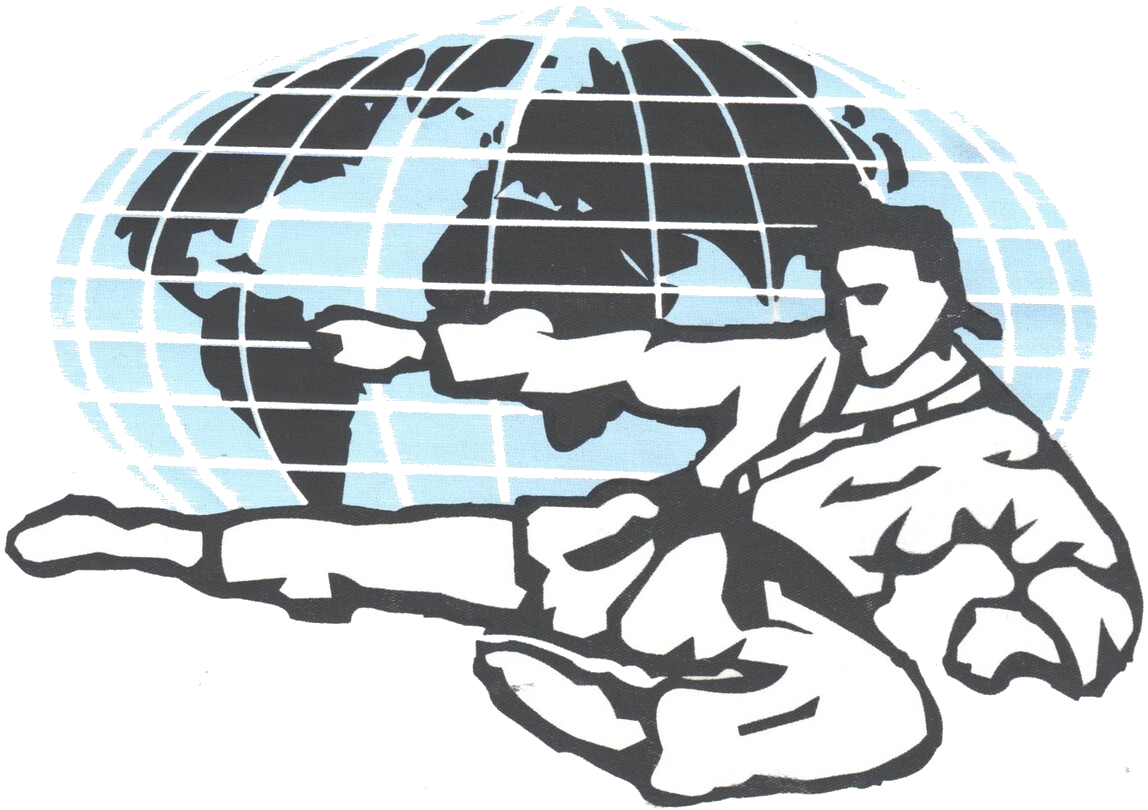An Interview with Ms. Atsuko Wakai
By Mrs. Teru Enomoto-Heyl [A.S.]
| This interview was conducted October 15, 2000 at the 15th WKF Championships – Munich, Germany, republished in cooperation with www.gojuryu.network & Teru Enomoto-Heyl and also found [hard] copy at American Samurai magazine. Born on September 9, 1971, Ms. Atsuko Wakai was the most reviewed member of Seigokan [Gifu Dojo] Gōjūryū Karatedō in recent years. Ms. Atsuko Wakai provides a fascinating insight into her journey in Karatedō and her achievements in the world of competitive Kata. Wakai Sensei’s story is inspiring, particularly her recovery from a serious car accident at a young age and her dedication to Karatedō as a means of regaining strength and coordination. Her success in both national and international competitions, including multiple World Championships and Asian Games, is a testament to her skill, determination, and passion for the art. For competition training she traveled to Osaka to train with her “male version” Mr. Ryoki Abe with JKF coach Mr. Akira Shiomi Sensei. Mr. Shiomi Sensei is also the Chief Technical Director of the JKF Gojukai. At the time of this interview Wakai Sensei had just won her second world championship, taking 1st place in the individual women’s Kata category. She would later retire in October 2005, after her victory in 1st place in the 7th World Games [again in Germany] having become the most successful woman in the history of Karate. Wakai Sensei’s focus on understanding the meaning behind Kata, and her intent to know the Kata so well that it becomes a part of her, highlights the depth of her practice and the importance of mental and physical integration in Karatedō. Her admiration for Suzuko (Okamura) Hamasaki, the first Women’s World Kata Champion, and her aspirations to coach children after retirement reflect her respect for the tradition of Karatedō and her desire to give back to the community. Overall, this interview showcases Atsuko Wakai Sensei’s remarkable contributions to Gōjūryū Karatedō and her role as an influential figure in the world of martial arts. Her advice to aspiring Karateka is to listen to their sensei, develop strong basics, stay focused, and enjoy the practice is valuable guidance for anyone pursuing excellence in this discipline. Republished (re-syndicated) with permission and edited for Gojuryu.network. |
Mrs. Teru Enomoto-Heyl [A.S.]:
– Congratulations on defending your World Championship title, and thank you for taking the time to meet with us this afternoon.
Ms. Atsuko Wakai Sensei:
– You’re welcome.

Atsuko Wakai Today
Mrs. Teru Enomoto-Heyl [A.S.]:
– When did you begin Karatedo, and why did you decide to study this art?
Mrs. Teru Enomoto-Heyl [A.S.]:
– When I was very young, about 4 years old, I was in a terrible car accident. I was in the hospital for a long time, about four months, with a serious head injury.
The injury affected my nervous system, and I couldn’t move my body. My recovery was very slow. After I was released from the hospital, my parents enrolled me in a Karatedo dojo to help me regain my strength and coordination.
Mrs. Teru Enomoto-Heyl [A.S.]:
– What were your classes like? Were boys and girls in classes together or were they in separate classes?
Ms. Atsuko Wakai Sensei:
– Boys and girls had classes together.
Mrs. Teru Enomoto-Heyl [A.S.]:
– Did you do other sports in school?
Ms. Atsuko Wakai Sensei:
– No… I only did Karatedo. It was something I really enjoyed.

Atsuko Wakai Superinpei Kata at the 17th World Karate Federation WKF Championships in November 19th 2004 in Monterey Mexico
Mrs. Teru Enomoto-Heyl [A.S.]:
– What made you begin competition?
Ms. Atsuko Wakai Sensei:
– In the beginning, it was just something that everyone was doing. We would train and then compete in various events. I never won anything, though.
Mrs. Teru Enomoto-Heyl [A.S.]:
– What made you continue to compete?
Ms. Atsuko Wakai Sensei:
– At first, I competed because everyone else was… but… when I did not do so well… I continued because I wanted to win at least once. After that… it just became something that I enjoyed.
Mrs. Teru Enomoto-Heyl [A.S.]:
– In the United States, many Karatedoka focus on either Kata or kumite for competition. Did you have the same experience?
Ms. Atsuko Wakai Sensei:
– No, actually, early in my competitive career, I did both kumite and Kata. In fact, I did kumite more.

Wakai Sensei keeps winning
Mrs. Teru Enomoto-Heyl [A.S.]:
– When did you decide to focus more on Kata?
Ms. Atsuko Wakai Sensei:
– I can’t remember which All Japan tournament it was but… I took third place in Kata. It was the best I had done at that level. After that… I concentrated more on Kata.
Mrs. Teru Enomoto-Heyl [A.S.]:
– We heard, at one time, you seriously considered retiring. What’s the story behind this?
Ms. Atsuko Wakai Sensei:
– Several years ago, there was a period when I seemed to have reached my peak. No matter what I did, I couldn’t break into the top two. It was a very frustrating time, and I seriously considered retiring. Then, a good friend and fellow Japanese Team member, Shinichi Hasegawa, told me I couldn’t quit. He thought I was very close to taking my skills to the next level, getting past the plateau. In order to do that, I had to recommit myself to my training and my goals. It was shortly after than when I won the All Japan Championships and a number of subsequent tournaments.
Mrs. Teru Enomoto-Heyl [A.S.]:
– Now that you’ve successfully defended your title and won your second consecutive World Kata Championship, what are your plans and future goals?
Ms. Atsuko Wakai Sensei:
– I still have a few tournaments left this year, the All Japan Championships in December and one or two others. After that we’ll see. I’m not ruling out the World Championships in 2002!

Atsuko Wakai keeps winning 17th World Karate WKF Championships Monterrey Mexico November 19 2004
Mrs. Teru Enomoto-Heyl [A.S.]:
– How often do you train?
Ms. Atsuko Wakai Sensei:
– I’m very lucky. The construction company I work for, Ichikawa Komuten, has been very supportive of my training and competition schedule. They have a company Karatedo club and allow me to teach. A few of the club members (Akiko Takasaki & Midori Nishgaki) are here in Munich to support the Japanese team.
Mrs. Teru Enomoto-Heyl [A.S.]:
– Several of your students at the Ichikawa Komuten club have done quite well in competition and are ranked in Japan. Didn’t a few of them go to America with you earlier this year?
Ms. Atsuko Wakai Sensei:
– Yes… we were fortunate enough to do well. Three of my students (Akiko Takasaki, Kiyomi Yabuta and Yuko Nagao) joined me on my last trip to the United States and competed. We all enjoyed our visit and hope to return there in the coming year
Mrs. Teru Enomoto-Heyl [A.S.]:
– Do you use any traditional training methods or equipment?

Atsuko Wakai Karate Legend
Ms. Atsuko Wakai Sensei:
– I use the sashi to train (with supplementary equipment).
Mrs. Teru Enomoto-Heyl [A.S.]:
– How do you prepare for Kata?
Ms. Atsuko Wakai Sensei:
– I prefer to understand the meaning behind the Kata and the techniques being done. My intent is to know the Kata so well that it becomes a part of me. The timing, focus, speed and power throughout the Kata have to be ingrained, that’s how consistency is developed. Then, I just do what I’ve practiced to the best of my ability at each competition.

Atsuko Wakai
Mrs. Teru Enomoto-Heyl [A.S.]:
– Who do you look up to or admire?
Ms. Atsuko Wakai Sensei:
– Suzuko (Okamura) Hamasaki is someone I really admire! She was the first Women’s World Kata Champion in 1980. The first time I saw her, I wanted to be just like her.
Mrs. Teru Enomoto-Heyl [A.S.]:
– What words of advice do you have for children and teenagers who want to become world champions?
Ms. Atsuko Wakai Sensei:
– Listen to your sensei and follow their instructions. Develop strong consistent basics. Stay focused on your goals. Believe in yourself, even when you get frustrated or disappointed. Most of all, you have to really enjoy Karatedo, deep down. That will get you through the rough times.

Atsuko Wakai orange jacket
Mrs. Teru Enomoto-Heyl [A.S.]:
– Do you have any long range goals you would like to share with our readers?
Ms. Atsuko Wakai Sensei:
– When I retire from competition, I plan to work with children as a coach. I really enjoy working with children. I think I can share some things that will help them improve their Karatedo and have fun in the process.
Mrs. Teru Enomoto-Heyl [A.S.]:
– Thank you very much for this interview and the best of luck in your upcoming competitions
Ms. Atsuko Wakai Sensei:
– You’re very welcome.
More about Ms. Astuko Wakai.
Born September 9th 1971, Ms. Atsuko Wakai Sensei has been the most reviewed member of Seigokan [Gifu Dojo] Gojuryu Karatedo in recent years. At only 163 cm and 57kg her primary winning focus has not been Kumite however the elite International level Women’s Kata Divisions. For competition training she travels to Osaka for coaching with her male counterpart Mr. Ryoki Abe with the JKF coach Mr. Akira Shiomi Sensei. Mr. Shiomi Sensei is also the Chief Technical Director of the JKF Gojukai.
Ms. Atsuko Wakia Sensei recent credits include:
| World Games – Karatedo Division | 1997 | Lahti Finland | Women’s Kata | Gold |
| Asian Games XIII – – Asian Karatedo Federation [AKF] formerly known as AUKO | 1998 | Bangkok | Women’s Kata | Gold |
| 14th World Karatedo Federation Championships | October 1998 | Rio De Janero Brazil | Women’s Kata | Gold |
| 1999 Asian Karatedo Federation [AKF] formerly known as AUKO | November 1999 | Singapore | Women’s Kata | Gold |
| 15th World Karatedo Federation Championships | October 2000 | Munich Germany | Women’s Kata | Gold |
| World Games – Karatedo Division | 2001 | Akita Japan | Women’s Kata | Gold |
| 5th Asian Senior Karatedo Championships | November 2001 | Kuala Lumpur Malaysia | Women’s Kata | Gold |
| Asian Games IXV – Asian Karatedo Federation [AKF] formerly known as AUKO | October 2002 | Busan South Korea | Women’s Kata | Gold |
| 16th World Karatedo Federation Championships | November 2003 | Madrid Spain | Women’s Kata | Gold |








